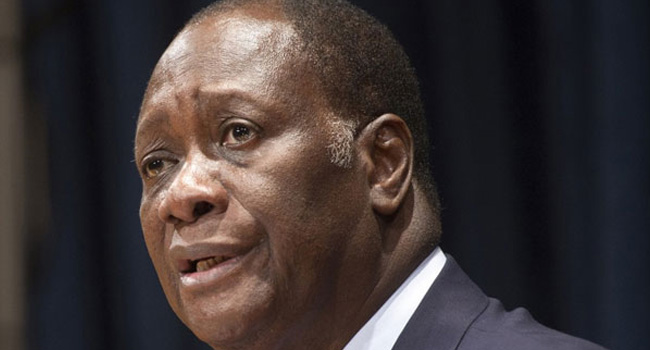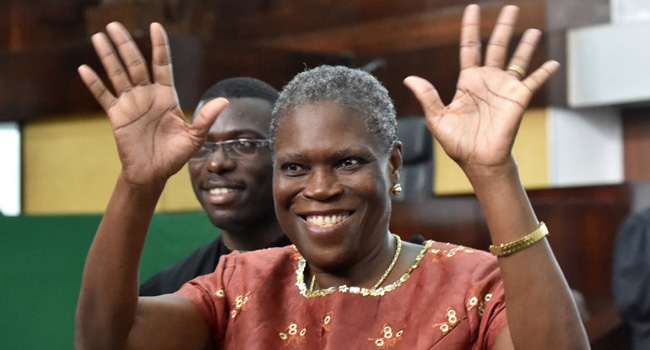Cote D’Ivoire’s President Grants Simone Gbagbo Amnesty
 President of Cote d’Ivoire, Alassane Ouattara
President of Cote d’Ivoire, Alassane Ouattara
Cote d’Ivoire’s President Alassane Ouattara on Monday announced amnesties for around 800 people, including former first lady Simone Gbagbo who is currently behind bars, in the name of national reconciliation.
Last week, Cote d’Ivoire’s Supreme Court overturned an earlier acquittal granted to Gbagbo for crimes against humanity.
The wife of former president Laurent Gbagbo, in power from 2000 to 2010, will “soon be freed,” Ouattara said during a televised address to the West African nation on the eve of the country’s independence day.
Simone Gbagbo has been serving a 20-year sentence handed to her in 2015 for “endangering state security”.
 In this file photo taken on May 9, 2016, Ivory Coast’s former first lady Simone Gbagbo waves at her supporters as she arrives at Abidjan’s courthouse prior to the opening hearing of her trial over charges of crimes against humanity for her alleged role in the 2010 electoral violence.
In this file photo taken on May 9, 2016, Ivory Coast’s former first lady Simone Gbagbo waves at her supporters as she arrives at Abidjan’s courthouse prior to the opening hearing of her trial over charges of crimes against humanity for her alleged role in the 2010 electoral violence.
ISSOUF SANOGO / AFP
Laurent Gbagbo has been in detention at the International Criminal Court (ICC) at The Hague for seven years.
Since 2016, he has been tried for alleged crimes against humanity during post-election unrest in 2010.
Among the others granted amnesties by Ouattara on Monday were former defence minister Lida Kouassi — a key ally of Laurent Gbagbo — who was sentenced this year to 15 years for conspiracy, and former construction minister Assoa Adou, jailed in 2017 for four years.
“On Monday I signed an amnesty order that will benefit about 800 citizens prosecuted or sentenced for offences related to the post-election crisis of 2010 or state security offences committed after May 21, 2011, (the date of Ouattara’s inauguration),” the president said in his address.
Around 500 of those named have already been released provisionally from detention, he added. They will have their criminal records erased.
The other 300 will be released “soon”, he added, without giving any dates.
The question of national reconciliation in Cote d’Ivoire, or the lack of it, has been seen by observers as a black mark against Ouattara.
About 3,000 people died in the turmoil that swept Abidjan — once one of Africa’s most cosmopolitan cities — in the aftermath of the November 2010 presidential polls when Laurent Gbagbo refused to accept defeat to bitter rival Ouattara.
AFP


0 Comments:
Post a Comment
Subscribe to Post Comments [Atom]
<< Home